Alan Milburn’s message of ‘health choices for the many not the few’ is still powerful
It is an argument that is rarely heard in politics today – except in brief but striking flashes from Wes Streeting, very much Milburn’s heir as shadow health secretary, writes John Rentoul


Your support helps us to tell the story
From reproductive rights to climate change to Big Tech, The Independent is on the ground when the story is developing. Whether it's investigating the financials of Elon Musk's pro-Trump PAC or producing our latest documentary, 'The A Word', which shines a light on the American women fighting for reproductive rights, we know how important it is to parse out the facts from the messaging.
At such a critical moment in US history, we need reporters on the ground. Your donation allows us to keep sending journalists to speak to both sides of the story.
The Independent is trusted by Americans across the entire political spectrum. And unlike many other quality news outlets, we choose not to lock Americans out of our reporting and analysis with paywalls. We believe quality journalism should be available to everyone, paid for by those who can afford it.
Your support makes all the difference.At the end of every “Blair Years” course we teach at King’s College London, we ask our students what most impressed them about the module, and the answer this year was surprising. Many of them had been struck by Alan Milburn, the ultra-Blairite cabinet minister, who was one of our recent special guests. He spoke passionately about spreading the health choices that some take for granted to everyone.
“If you’re wealthy you have choice in healthcare because you go private,” he said. “The poorest don’t have that choice. I thought that was wrong. I come from a poor background, so I didn’t have much choice in my life when I was growing up as a kid. I didn’t think that was fair or right. I wanted to change it.”
So as health secretary from 1999 to 2003, he introduced choice and transparency, “so that the public, the people who are paying for it and using it, can actually see which services were good and which were less good.
“Unbelievably, that was deeply controversial at the time,” he said. “I remember having this argument with a very senior civil servant in the department saying, ‘We’re going to do choice’. He looked at me and said, ‘Minister, patients don’t want choice’.”
Milburn explained why he felt so strongly: “I just hate the fact that, if you grew up like I did on a council estate, you’ve got no choice. I can remember as a kid, it’s seared in my memory: we grew up in this old mining town called Tow Law in County Durham, and our front door was painted yellow. I went off to school, came back – I was nine or 10 – and the front door had been painted red.
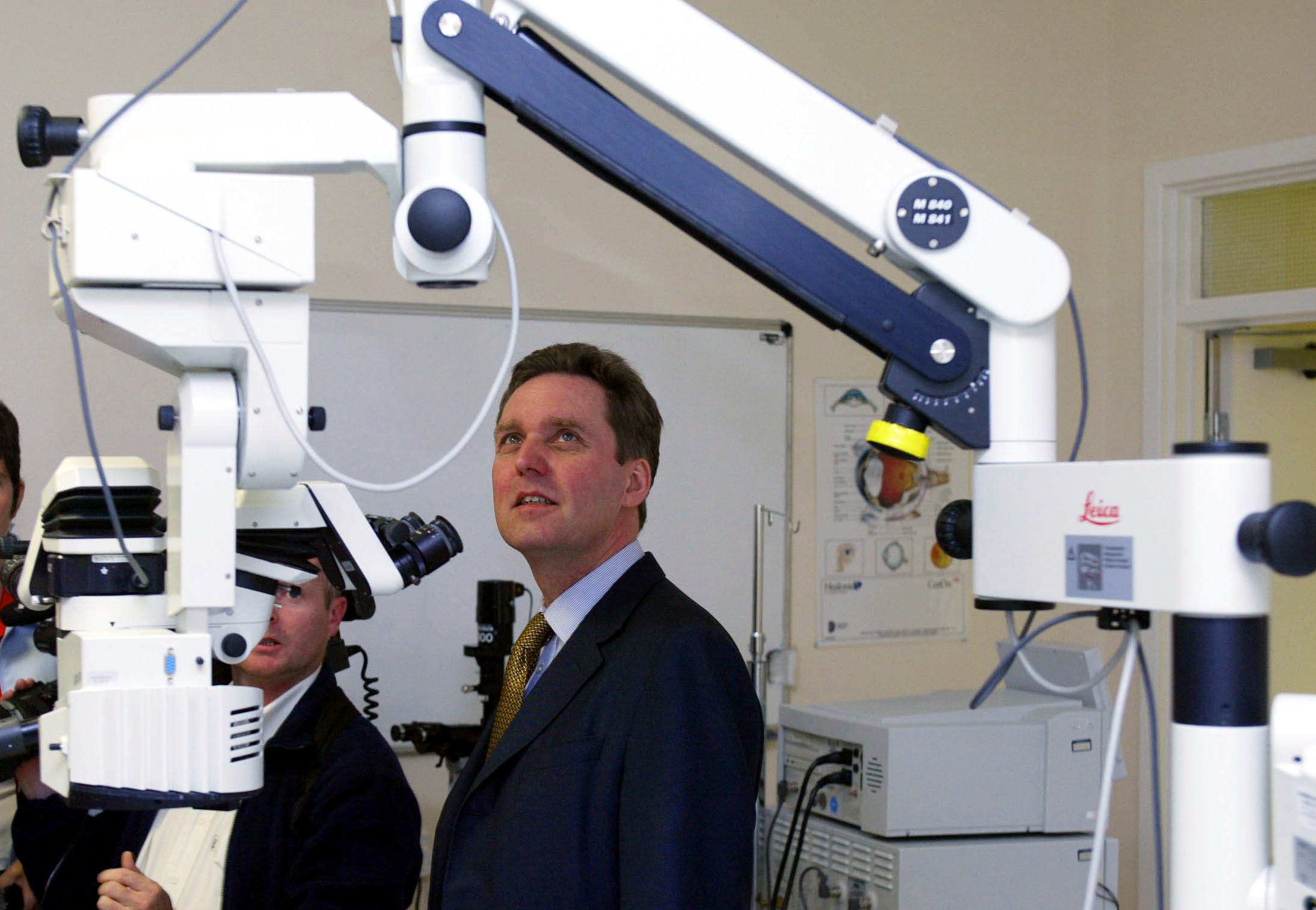
“Who decided? Not my mum – I was brought up by a single mum – the council had decided. I hated it. ‘It’s our house, not their house.’ To this day when I’m talking about it I get this tingle down my spine. I hated the idea that if you’re poor you never got a choice, and if you’re rich you did.”
So Miliburn said to the senior civil servant: “OK, I’ll tell you what, let’s go and test the proposition that patients don’t want choice. I’ll give you an advantage. Let’s go and test it on the least consumerist generation: let’s test it on old age pensioners who are waiting for cataract operations.”
My view was, you have to break this notion that the people who got most of the money were the people who were doing worst, rather than the people who were doing best, which I thought was a perverse incentive
He explained to our students: “At the time, people could be waiting for two or three years to get an eye operation – by which time they’re dead; it’s a bit late, really. So I said let’s give patients in London a choice. They can either go to that hospital that’s waiting two years, or they can go to another one, which could be a private one, but we’ll pay for it, and they can wait three months. How many chose the different hospital? Seventy-five per cent. So you’re having to challenge this notion that somehow or other choice was something that applied in one walk of life but couldn’t apply in others; this was the cultural problem in the public services.”
It took some time, however, for him to understand how to achieve change. He told the class that “everything seemed possible” when New Labour had come to power in 1997, but it had no clear plan for the NHS.
Tony Blair rang him after the election to offer him the job of minister of state in the Department of Health, the number two position. “I said to him, ‘So what do you want me to do?’ I remember this conversation so vividly, as if it was yesterday. He said, ‘We need a health policy.’ Because in opposition we didn’t have a health policy. We had a slogan. We had a pledge card. We had a rough idea. But we didn’t have a policy. So here I was, walking into my great departmental office, devoid of the one thing that I needed and that the civil service needed, which was a policy.
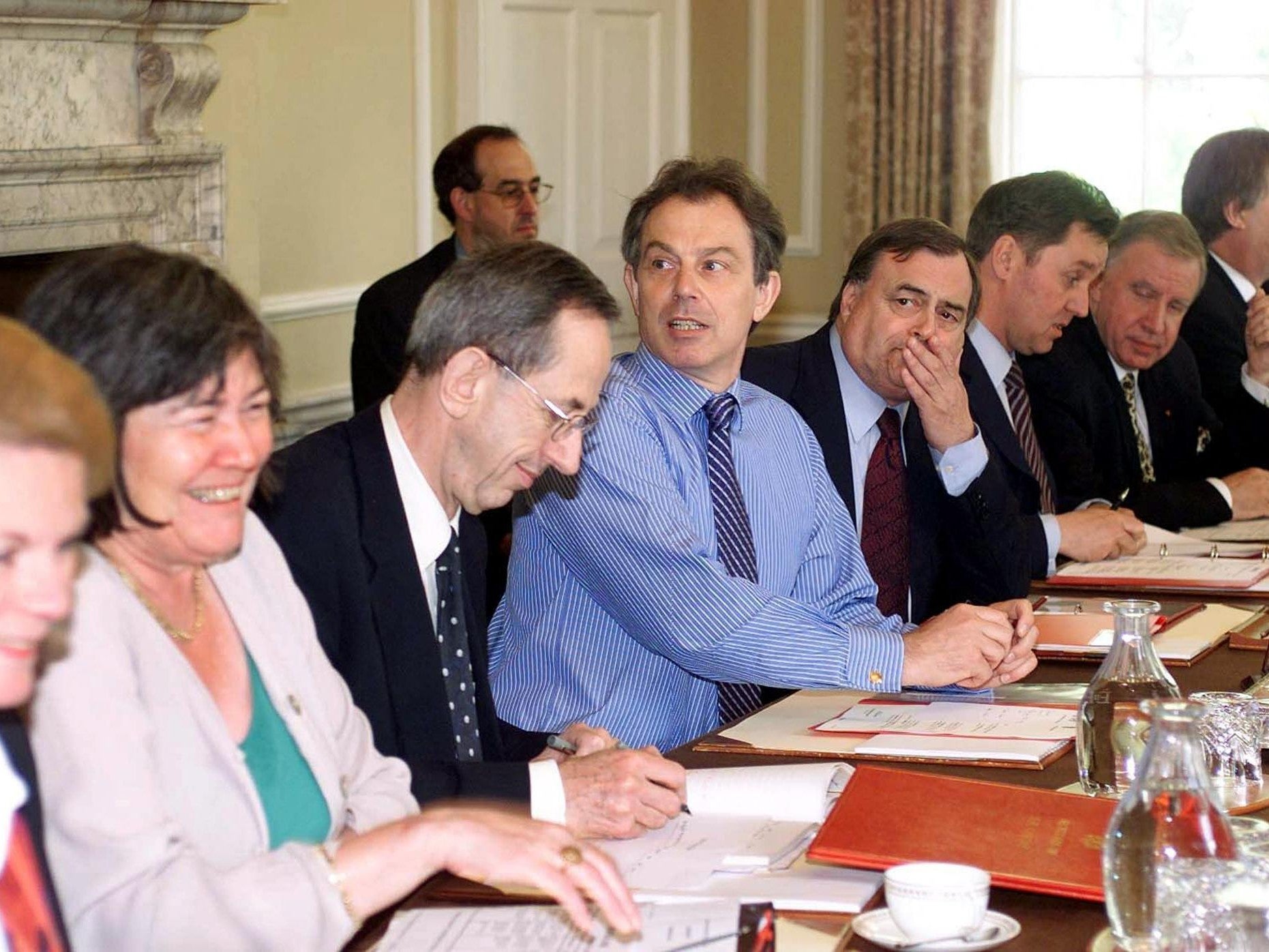
“Suddenly, you’re governing. From day one, you’re responsible. So you have to work it out. So how do you do it? Well, you talk to people. There were some smart people, some good people in the department, but I basically worked out that the department, if not quite a force for conservatism, was definitely not at the radical end of the spectrum. My analysis was that if this thing was going to survive, going to be sustainable, then it had to go through a fundamental and sometimes brutal transformation. And that wasn’t terribly popular with the civil service.”
When Milburn was promoted to the top job, secretary of state for health, two years later in 1999, it was described as “a coup d’etat against the department”. That was the phrase used by Michael Barber, a political adviser to David Blunkett at the education department and later head of the Prime Minister’s Delivery Unit, which “describes my time very well”, said Milburn. “Because I brought in loads of outsiders, my so-called tsars – these were clinical directors for cancer and coronary heart disease, or leading doctors in the system. I had chief executives working in the system who would come to me saying, ‘This needs to happen or that needs to happen.’”
He explained where the idea for foundation hospitals, largely self-governing but within the NHS, came from. “It came about as a consequence of an afternoon meeting that I had with the 12 or 13 best-performing CEOs of local NHS trusts in the country. I wanted to go and meet them to do two things. One, to recognise them and say, ‘Well done, guys, fantastic job, because we’ve got these new league tables and you’re at the top.’ And then to ask them a very basic question, which was, ‘What can I do for you?’ I thought the answer was going to be, ‘Give me more money.’ And the answer from them was, ‘Give me more freedom.’ What they wanted was me off their backs. They didn’t want me running their local service. They wanted them running the service. That’s really how it happened.”
He admitted that it was “a messy process” because he had come in “without a fully formed view about what it is that I was trying to do”. He confirmed what Lord Blunkett had told the class the previous week: “It’s no coincidence that the two areas of public policy when New Labour hit the ground running were economic policy and education policy. Why? Because there was continuity in personnel, because Gordon Brown had been the shadow chancellor, and then he became the chancellor, and David Blunkett had been the shadow education guy and then became the education secretary. So he had an opportunity to work it out. That didn’t happen with health. We had a different guy, Chris Smith, who was the shadow health secretary, and then Frank Dobson became the actual health secretary. Changing personnel, by the way, is a curse in modern politics.”
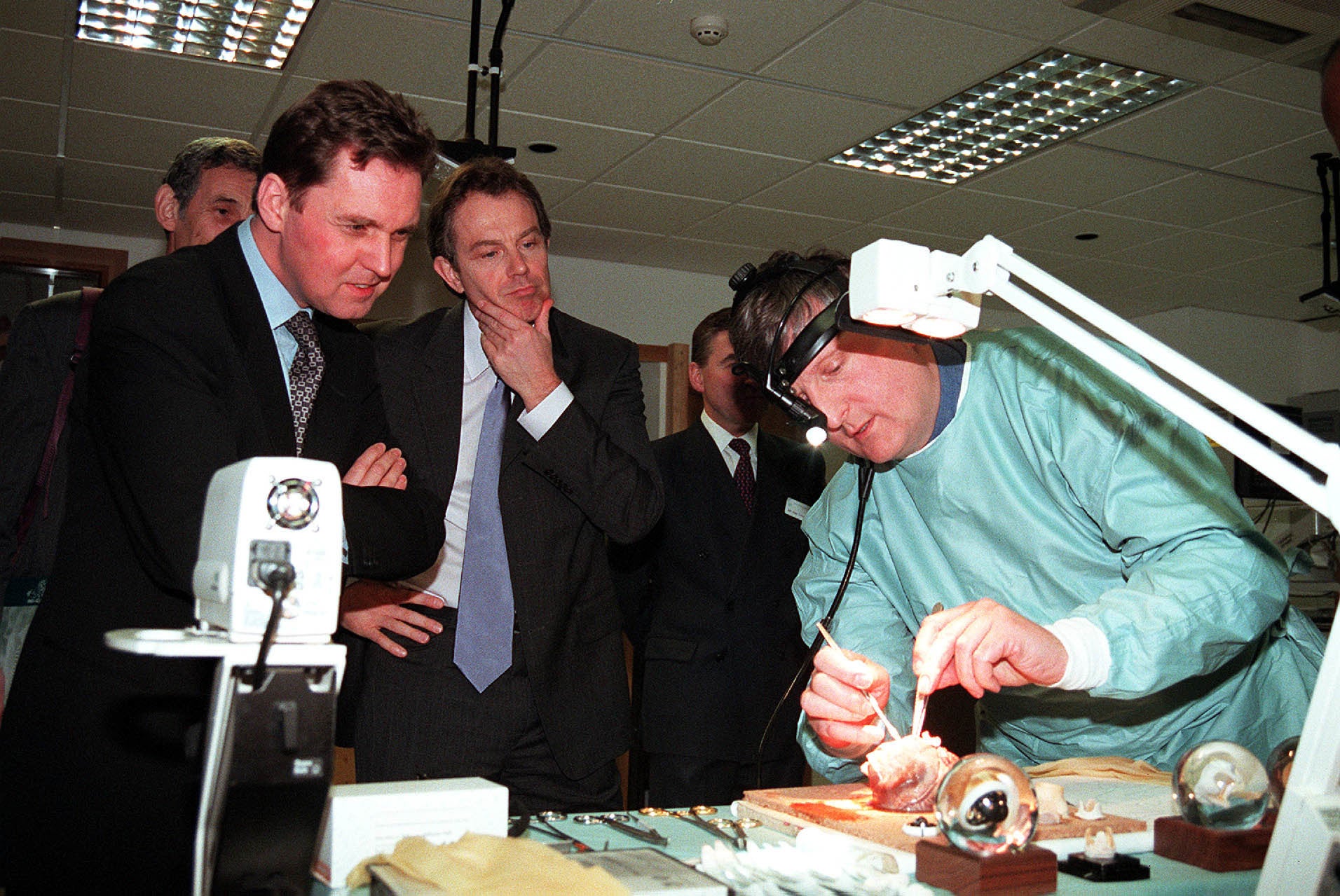
NHS reform advanced by trial and error. “I learnt as I went along. For a time I thought I could run it. I thought I was really good. I thought I had all the answers. I thought I could tell a million people what to do, and somehow if I told them, they’d do it. What’s the likelihood of that working, really?”
He learned “through bitter experience, the performance management, top-down, naming and shaming, all that stuff which we did in the first term because it gets you part of the way.
“You’ve got to have a target because otherwise people aren’t sure what the objective is. But if that’s your sole means of prosecuting change, it can’t happen. And so in the second term of the Blair government, the emphasis began to shift towards more devolution, city academies, trust schools, foundation hospitals, primary care trusts, basic command units in the police, more market mechanisms, choice.”
Choice was central to Tony Blair’s emerging plan for New Labour’s public service reforms, and Milburn was one of its most enthusiastic advocates: “Parents being able to choose between different types of school, and patients being able to choose between different types of hospital, backed by far greater transparency so that people can make an informed choice.” But he admitted that it took him a long time, five or six years, well into the second term, to get “the right balance of levers”.
Then he resigned from the cabinet in 2003, after a clash with Gordon Brown in which Blair eventually took the chancellor’s side. “I was gone. Hey presto. Out of it.” Milburn wanted to go further in giving foundation hospitals financial freedom, but found the policy issues caught up in Brown’s ceaseless campaign to take over from Blair. One of the students asked: “To what extent do you think Gordon Brown’s disagreement with you was genuinely ideological, or was it political positioning?”
Milburn said: “I think it’s always shades of grey. I think there was a legitimate Treasury concern about some of the reforms that I was making, particularly foundation hospitals. Gordon’s big concern was a very orthodox Treasury concern, because I wanted to liberate foundation hospitals to be able to succeed, but also to be able to fail.
People said this was about privatising the NHS and foundation hospitals would be a privatised part of our healthcare system. Foundation hospitals are around today; they are part of the NHS
“My view was, you have to break this notion that the people who got most of the money were the people who were doing worst, rather than the people who were doing best, which I thought was a perverse incentive. So every time a hospital ran into trouble, they came to me and asked me for more money, and what do you do? You give them more money. That means that the pot of money available for the guys who do really well is less. There’s no other walk of life where that works as an incentive. So I wanted to change that. I wanted to give them the ability to fail. And from a Treasury point of view, there was a quite legitimate concern that if that happened, the Treasury would end up picking up the public expenditure tab.
“Now it was actually a bit more nuanced than that because we weren’t going to allow the hospital ever to fail. We were going to allow the management team to fail. But let’s be generous and say that was a very reasonable Treasury concern to have, discharging its role as the finance department. That’s one aspect of it. But the truth of it is that there was an ideological piece of it as well, that Gordon was just less comfortable about these market mechanisms than Tony and I were. There was definitely a political element to it in that Gordon thought I was going to run against him to be the next prime minister. And he was determined to kill me.”
Milburn said he did consider trying to become prime minister: “The truth is I was thinking for a time, well, could I do it? Was it going to be possible? Was it going to work with my family above all else? Because my kids were very young at the time.
“In the end, I concluded that I wasn’t going to run. Gordon didn’t think that. He thought that everything I was doing was about positioning, to create a dividing line with him. So there was a very strong personal element to it.”
The dispute ended in a clash over the legislation for foundation hospitals, which was opposed by many Labour MPs, including a number of Brown’s supporters. “Tony was increasingly getting nervous about it, and then rang me on a Sunday, and I knew it was going to be bad because he had that apologetic tone in his voice: ‘We have to find a compromise.’ In those days, I was much more angular than I am now; I think I used some very bad words to the prime minister. In the end, I said to him, ‘Look, you can do what you want, but the policy won’t be as effective if you compromise.’ And it wasn’t as effective. But he compromised because there are overriding reasons which, if you’ve watched the Blair-Brown documentary, you’ll get a sense of why.”
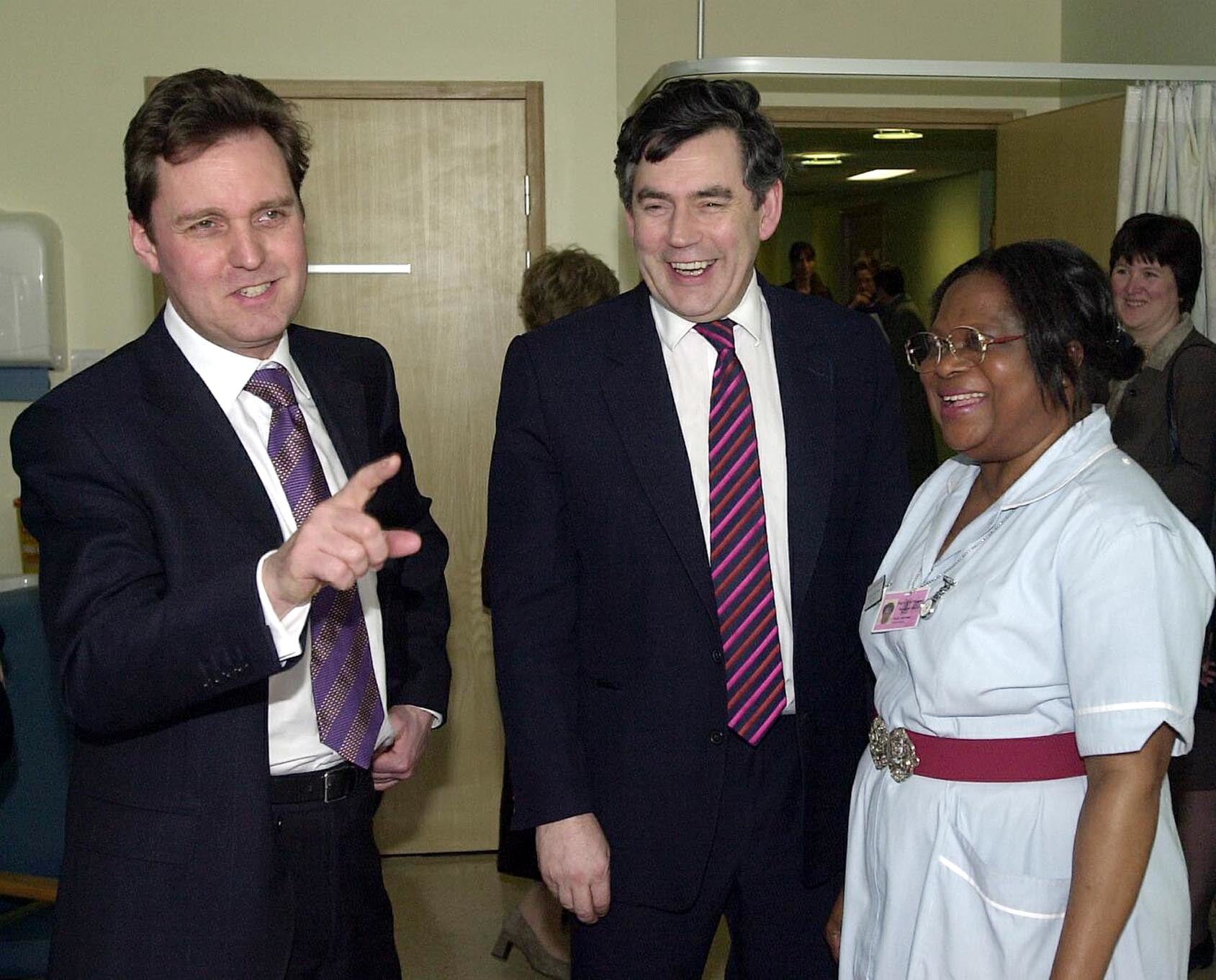
Despite the compromise, and despite Blair’s huge majority in the Commons, the bill passed by only 17 votes in November 2003, after Milburn had resigned.
I asked Milburn if his problem was that Brown was on the right side of public opinion on this issue. “None of the reforms were popular. Not one of them. This is the thing about politics. In the end, you’re in it because you believe in something. If you’re in it because you don’t believe in anything, don’t do it. I believed fundamentally these were the right things to do, and I was going to do them. It’s not that I didn’t care about what the public thought, but I knew that they were never going to be popular with the public. Why would they be? But the truth is, what is popular is shorter waiting times, better outcomes and higher levels of public confidence. You’ve got to have faith.
“Now, when you look back at it, people were – I mean, my dear friend, Frank Dobson, God rest his soul, he was my first boss in government. But Frank, when I put the legislation through the House of Commons, said this was about privatising the NHS and foundation hospitals would be a privatised part of our healthcare system. Foundation hospitals are around today; they are part of the NHS.
“The funny thing, when you go through these battles, you’re walking through fire, but actually, when you pass through it, people go, ‘It’s not that bad.’ It was quite a meaningful reform, but it wasn’t what its opponents said it was going to be.”
Once the changes had begun, and the new money started to flow, the NHS started to improve dramatically – and continued to do so under his successors John Reid and Patricia Hewitt. “Not every problem was solved, by any means; a lot of things we got wrong. But the three things that really did change were, first of all: access. When I became health secretary, people were waiting well over 18 months for a hospital operation. By Labour’s end of term of office, people were waiting a maximum of 18 weeks.”
Why do the Apples, Googles, Facebooks, why do they all want to play in health? Because it’s the biggest market. People want to exercise choice and want to exercise control
He was proud that the kind of service that had previously been available only to private patients was now open to everyone: “It was a transformation, and it was a real problem for the private health industry because people no longer wanted to go private. They wanted to go public, believe it or not. Today, the reverse applies. So waiting times dramatically fell, and this was a consequence of lots of difficult technical changes and reforms.
“Second, importantly, health is not in the end about access, it’s about outcomes. Are people living better, longer, healthier lives? And whether you looked at cancer or coronary heart disease, outcomes improved dramatically. Health inequalities actually fell. Teenage pregnancies fell.
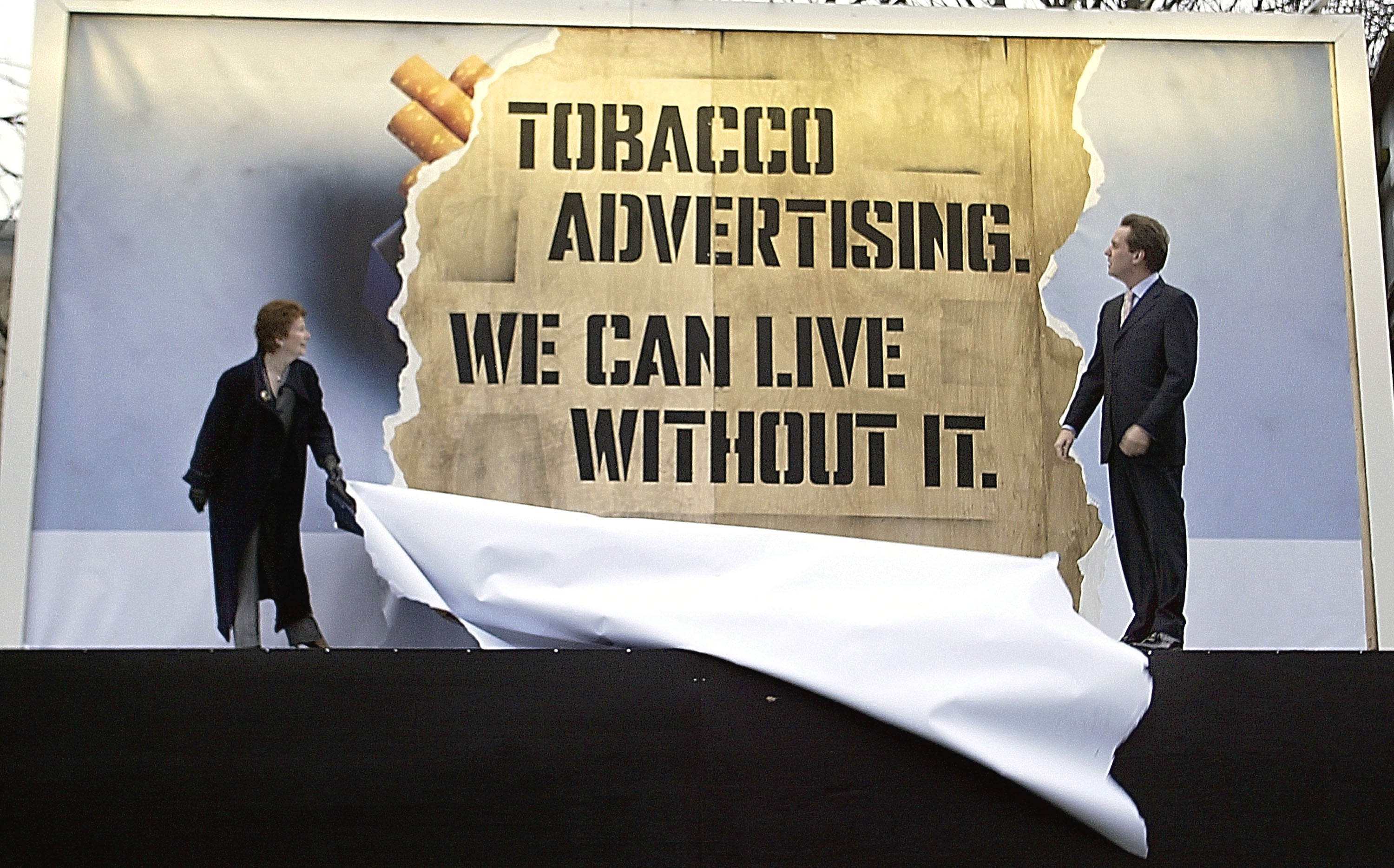
“And then finally, public confidence is an indicator. It is a really important indicator when you’re dealing with public services, and critically important in politics, because if the public are not with you then they’re against you, and you lose an election. When we began in 1997, about 34 per cent of the public was satisfied with the performance of the NHS. When we finished in 2010, 70 per cent were. Today, by the way, the comparable number is 34 per cent. It’s funny how the world comes round again, isn’t it?”
He had lost none of his zeal for choice as the driver of change in the public sector, and yet it is an argument that is rarely heard in politics today – except in brief but striking flashes from Wes Streeting, very much Milburn’s heir as shadow health secretary. Perhaps that was why our students were so struck by the radical egalitarianism of Milburn’s message, now updated for the smartphone age.
He asked: “What are the biggest selling apps? They’re about health. Why do the Apples, Googles, Facebooks, why do they all want to play in health? Because it’s the biggest market. People want to exercise choice and want to exercise control.”
When he was health secretary he was trying “to align the culture of the service with the culture of modern-day society”. He did not fully succeed: “Outcomes got better; performance got better; but culturally, did I get where I wanted to in terms of being able to permanently change the system, so that it felt more owned by the patients and less by the doctor or by the politician? No. That’s the unfinished work in my view that has to be done.”
John Rentoul is visiting professor at King’s College London, where he teaches the ‘Blair Years’ postgraduate course with Dr Michelle Clement and Professor Jon Davis
Join our commenting forum
Join thought-provoking conversations, follow other Independent readers and see their replies
Comments